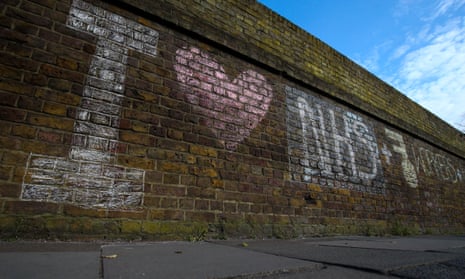Now England has “dental deserts”. According to the Association of Dental Groups, large areas of the country are devoid of their care. Dentists are leaving the NHS in record numbers – more than 2,000 last year alone – leaving an estimated 4 million patients having to go private, dial 999 or just suffer.
Not a week passes without a bad news cloud enveloping Britain’s healthcare systems. This is partly shared with pandemic-hit services worldwide, but the British headlines seem particularly awful. The Shropshire maternity hospital horror piles on to the scandals of PPE procurement, care home Covid deaths, epilepsy drug failures and children’s mental health services being “at breaking point”.
A mass survey put the UK behind Canada, Germany, France and the US in terms of access to high-quality healthcare. So many GPs are leaving or switching to part-time – 800 practices have closed since 2015 – that some areas are likely to become GP deserts as well as dental ones.
To Britons, the NHS used to be a religion, evoking a loyalty akin to the medieval church. But their faith is being tested like never before. Surveys show satisfaction at an all-time low. A recent YouGov poll found almost a third of under-35s would be willing to pay for better care in the private sector, while the figure for dentistry must be higher. GPs, like dentists, are “going private” and a record numbers of patients are taking out insurance or being offered it by employers. Britain has one of the worst records for survival rates for cancer and other diseases of 18 western countries.
Covid has revealed much about the NHS that had long been semi-hidden. Unlike elsewhere in Europe, relentless centralisation has stripped local authorities of any responsibility for healthcare. It has also led to ruthless privatisation. Cash has been carelessly tipped into drug companies, IT gimmicks, management consultancies, offshore privately run care homes and stupefying bureaucracy. The supposedly “nationalised” NHS is a parastatal corporation making multimillionaires out of the owners of third-party providers.
This corporation is rotten at its centre and fraying at its edges. Its three pillars, hospital trusts, GP partnerships and the care sector, are uncoordinated. Politics keeps the Treasury chequebook prised open with the war cry of “free at the point of delivery”. The result is an NHS waiting list in England of 6 million patients, of whom 24,000 have been waiting more than two years. It means thousands of unnecessary deaths to serve the cause of no reform.
There are many other ways of organising public health. Most are regional or local, benefiting at very least from smallness. Many are insurance-based or rely on small payments with reclaims for those in need, a mild deterrent to abuse. Look abroad and you can see better health outcomes and higher user satisfaction. Germany has three times the UK’s beds per head of population and France more than double. No other country displays the public agony and turmoil of Britain’s NHS.
Britons refuse to believe they can learn from other countries. They simply assume that their NHS is the best in the world. It is not. It needs a high-speed bipartisan commission of inquiry – and urgent reform.
Simon Jenkins is a Guardian columnist, author and BBC broadcaster

